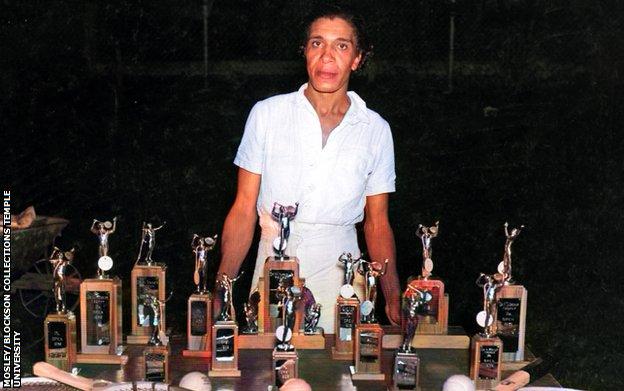
At a glitzy downtown New York hotel, the recently founded Black Athletes Hall of Fame was holding its annual ceremony.
It was March 1976 and the host was giving a speech about the latest inductee. You probably won’t know her name.
Ora Washington was a champion, a star of two sports, but prejudice stopped her competing for the biggest prizes of the day. Her sporting career spanned three decades of change in her native United States, but change didn’t come quickly enough.
Washington retired from tennis and basketball in the 1940s. In the mid-1970s a new generation started to dig deeper into her story. Hence the gathering in New York.
As the host finished introducing Washington to those gathered for that glamorous occasion, they started on something new: an apology.
Washington wasn’t there. There was a chair placed out on the stage for her, empty. The host said they were sorry but they hadn’t been able to track her down.
The New York Times wrote in its report the next day: “The silver bowl, gold ring and medallion she was to receive have been returned to the Hall of Fame offices in New York. And Miss Washington’s whereabouts remain a mystery.”
What nobody seemed to know was that Washington had already been dead for five years.
BBC Sounds and the BBC World Service have made a podcast series about Washington’s life. You can listen to episodes here.
Part of the motivation behind doing so was to get her story out there where it belongs, so it’s not forgotten.
Washington’s is a powerful and important story. She was one of the most extraordinary Black female athletes of the 20th century. Tennis great Arthur Ashe described her as “the first Black female to dominate a sport”.
There are still lots of things we can’t know about Washington, but we do know she received homophobic abuse, and that racism and white supremacy denied her both the opportunity and recognition she deserved.
Washington’s life threw up obstacles all along the way. And she took on the same types of injustice that many are still fighting today.

Washington was born in January 1898 or 1899 – the records aren’t clear. Her early life was spent in a small farming community called File in Caroline County, Virginia.
Hers was a large, tight-knit family, and they owned a farm. They’d built up some economic independence by the standards of the day. Historian Pamela Grundy, who contributes to the podcast series, went there some years ago and found out…
Click Here to Read the Full Original Article at BBC Sport – Tennis…

